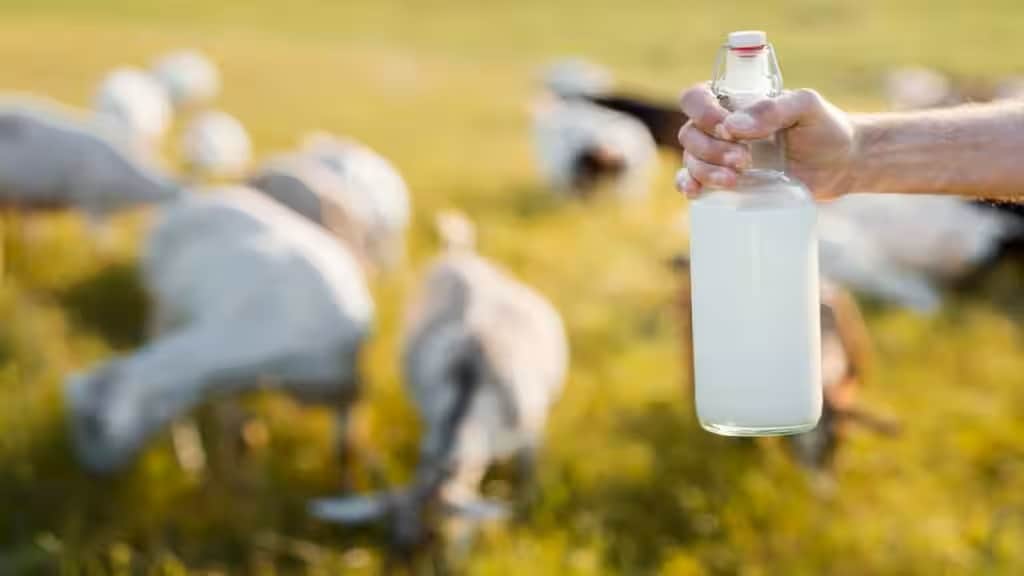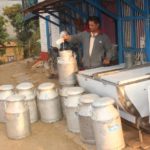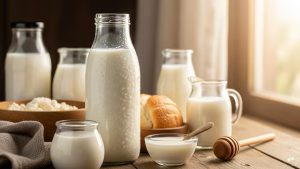
Dengue in India: Currently, as there is no specific treatment for dengue, the patients need to be treated on the basis of their symptoms.
Dengue in India: Owing to heavy rainfall, the incidence of dengue is rising across the country. According to media reports, the number of dengue patients being admitted to hospitals is increasing in the National Capital.
Reportedly, there is a possibility of a further increase in cases as floodwater in Delhi recedes. Amid the spike, the Delhi government’s Department of Drugs Control has issued an advisory to all chemical associations, urging them not to sell drugs like Aspirin and Ibuprofen without a doctor’s prescription.
The MCD report indicates that a total of 163 cases have been reported in the national capital this year until July 15. Social media is flooded with claims like consuming goat milk can increase the platelet count which is the most significant symptom of dengue. Every year, the kin of infected patients, influenced by such claims, tend to search for goat milk and papaya leaves leading to an increased demand. However, is goat milk really beneficial?
How does dengue occur?
Dengue is a viral infection caused by the dengue virus (DENV). It is transmitted to humans through the bite of infected mosquitoes. According to the World Health Organization (WHO), about half of the world’s population is now at risk of dengue with an estimated 100–400 million infections occurring each year. Recently, the global health agency warned that global warming marked by higher average temperatures, precipitation, and longer periods of drought, could prompt a record number of dengue infections across the world.
Currently, as there is no specific treatment for dengue, the patients need to be treated on the basis of their symptoms.
Can goat milk treat dengue?
In 2015, a team of doctors at All India Institute of Medical Sciences (AIIMS) emphasised that there is no scientific evidence or research that can prove that goat milk can be effective in the treatment of dengue.
“It has been widely seen that people rush for goat’s milk in cases of dengue, especially in cases with low platelets. However, it should be noted that goat’s milk is neither a cure for dengue nor is it able to increase platelets directly,” Dr.Sakshi Singh, Consultant, Dept of Internal Medicine, Amrita Hospital, Faridabad told Financial Express.com.
Meanwhile, the Indian Medical Association (IMA), warns that raw goat milk can carry harmful bacteria such as salmonella, E. coli, and Listeria, and other germs that can cause foodborne illnesses and may make one very sick.
” Drinking raw goat milk can also cause brucellosis. It presents with fever, night sweats, malaise, loss of appetite (anorexia), joint pain (arthralgia), fatigue, weight loss and depression. These symptoms may either develop suddenly or gradually over several days to weeks. The most commonly involved systems are the musculoskeletal and genitourinary systems. Neurobrucellosis, endocarditis and hepatic abscess occur in 1 to 2 percent of cases. Think of brucellosis, if a person presents with otherwise unexplained fever and nonspecific complaints and has a possible source of exposure (e.g., contact with animal tissues, ingestion of unpasteurized goat milk or cheese). ELISA test confirms the diagnosis,” IMA stated.
Doctors maintain that the infected person should be given more fluids and vitamin C for faster recovery.
Dr. Singh emphasised that dengue is a viral illness, and inflammation is high around the liver and gastrointestinal organs, including the liver, gall bladder, and intestines. “Therefore, it is advisable to consume foods that are low in fat content, high in hydration, and energy sources. So, people should not blindly follow such trends, as many people might even be allergic to it or may not even tolerate it due to an already compromised digestive system,” she added.
The recovery of platelet numbers is done by our body itself gradually as the infection recedes and the body heals, she said.
“We just have to support the body during illness to heal well and avoid falling into any trends,” she added.
According to Dr. (Col) Rakesh Kumar, Sr. Consultant Internal Medicine at Artemis Lite, NFC, New Delhi, there are some cases where the data says, the patients have suffered bacterial infection, which can be transmitted into humans from the milks if the person consumes unpasteurized milk and It takes several weeks of antibiotic therapy to control the infection.
“During dengue infection, it is essential to focus on maintaining adequate hydration and nutrition to support the body’s immune response. A balanced diet and sufficient fluid intake, including water and other fluids, are crucial for recovery,” Dr. Kumar told Financial Express.com.
What are the symptoms of dengue?
According to WHO, symptoms usually begin 4–10 days after infection and last for 2–7 days. Some of the common symptoms include:
-high fever
-severe headache
-pain behind the eyes
-muscle and joint pains
-nausea
-vomiting
-swollen glands
-rash.
In case of severe dengue, the symptoms may include:
-severe abdominal pain
-persistent vomiting
-rapid breathing
-bleeding gums or nose
-fatigue
-restlessness
-blood in vomit or stool
-being very thirsty
-pale and cold skin
-feeling weak.
How dengue is treated?
In most cases, dengue fever can be treated at home. As there is no specific treatment, the patient is often treated on the basis of their symptoms. Paracetamol is often used to control pain. According to WHO, non-steroidal anti-inflammatory drugs like ibuprofen and aspirin are avoided as they can increase the risk of bleeding.

















